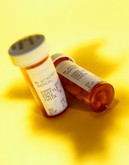Generics
Big Pharma finally warms to generic pariahs
After years of warding off generics, large pharmaceutical companies are embracing generic drug manufacturers and vying for a share of the off-patent drugs business. Indian generic companies, once considered business pariahs, are the focus of plenty of action, Anju Ghangurde reports in Scrip News of 9 December 2009.
Very few API plants in China allowed to supply the EU
Member of the European Parliament (MEP) Amalia Sartori has questioned the European Commission (EC)’s estimate that 20,000 active pharmaceutical ingredient (API) producers supply the EU, which was used to justify not having mandatory inspections.
Confusion about number of European API plants in China
A member of the European Parliament (MEP) has questioned the European Commission (EC)’s estimate that 20,000 active pharmaceutical ingredient (API) producers supply the European Union (EU), which was used to justify not having mandatory inspections, and the CEO of Hovione added that the numbers have been “dramatically misunderstood”.
Death sentence for six Chinese drug fakers
The Times of India reported on 10 December 2009 that six Chinese traders who exported fake anti-malaria drugs to Nigeria under the “Made in India“ label have been sentenced to death, the Ministry of Commerce in Beijing has said. But the ministry gave no further details about the identity of the traders.
EGA warning sounded over generic drug tenders
European Generic medicines Association (EGA)’s newly elected President, Mr Didier Barret, called for a “sustainable pricing system” for generic medicines to address unfair competition caused by large-scale government tenders for the products. Mr Barret, who also serves as head of Mylan's operations in Europe, the Middle East and Africa, made the remark as the organisation works on recommendations for expediting the approval of copycat drugs after patent expiration.
EU to seek details of drugmakers' patent deals
EU regulators will ask drug companies for details of deals with makers of generic medicines as part of a crackdown on firms suspected of blocking cheaper treatments, a European Commission (EC) official said on 19 November 2009.
Pfizer aims for Japanese generics market
Yet another US drugmaker is making eyes at Japan. Pfizer, the world's largest drugmaker, said on 19 November 2009 that it may start selling generic drugs in Japan from 2011 as part of its efforts to diversify its operations.
Multinationals trying to bring Indian generics into disrepute
India has alleged that some multinational companies have again been trying to bring its generics industry into disrepute.
Generic polypill could reduce heart disease
Could a combination of three blood-pressure-lowering drugs at low doses, with a statin, aspirin, and folic acid in one pill (the polypill), reduce cardiovascular events by more than 80% in healthy individuals? This was examined in a study funded by Cadila Pharmaceuticals in Ahmedabad, India (that wants to market the polypill as the ‘Polycap’), in which the effect of such a pill was assessed on blood pressure, lipids, heart rate, and urinary thromboxane B2, as well as its tolerability.
Growing generic injectables market: a cousin to biosimilars
Drugmakers are waking up to the opportunities in the generic injectables market for several reasons, not least of which are the high-profit margins the products can deliver. The segment also involves fast-growing therapeutic areas like oncology, anti-infectives and central nervous system (CNS) disorders. And for companies with an eye on the long-term prize, commercial and manufacturing experience in specialty generics could pave the way for a smoother entry into the biosimilars market when a regulatory pathway for low-cost biologics is created in the US.










